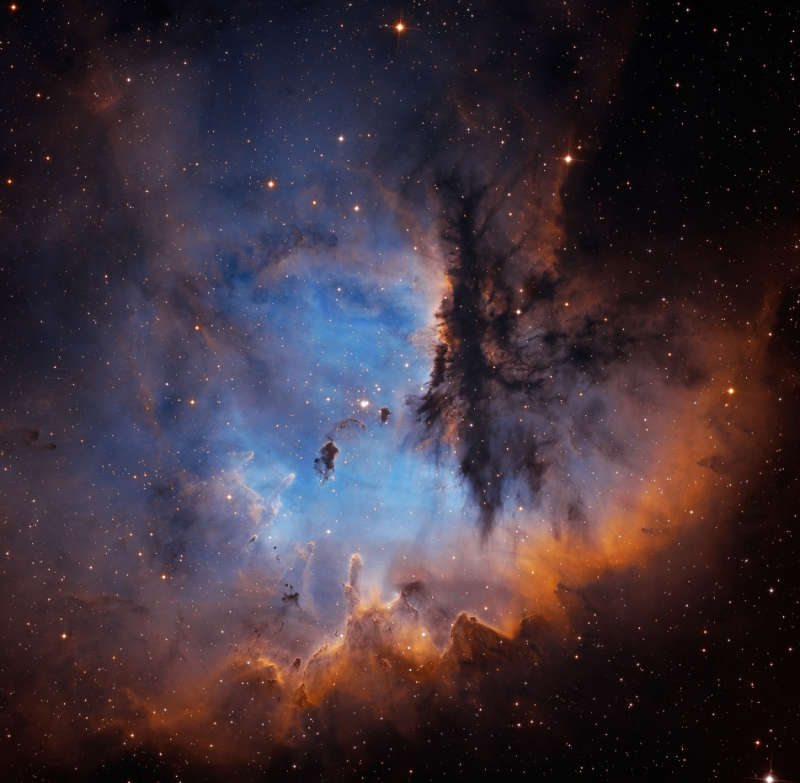Credit & Copyright: Martin Pugh
Explanation:
Look through the cosmic cloud cataloged as NGC 281
and you might miss the stars of open cluster
IC 1590.
But, formed
within
the nebula, that cluster's young, massive stars
ultimately power the pervasive
nebular glow.
The eye-catching shapes looming in
this portrait
of NGC 281 are sculpted columns and dense
dust globules
seen in silhouette, eroded by intense, energetic winds and radiation
from the hot cluster stars.
If they survive long enough,
the dusty structures could also be sites of future star formation.
Playfully called
the Pacman Nebula because of its overall shape,
NGC 281 is about 10,000 light-years away in the constellation
Cassiopeia.
This sharp composite image was made through
narrow-band filters,
combining emission from the nebula's hydrogen, sulfur, and oxygen
atoms in green, red, and blue hues.
It spans over 80 light-years at the estimated distance of NGC 281.
1999 2000 2001 2002 2003 2004 2005 2006 2007 2008 2009 2010 2011 2012 2013 2014 2015 2016 2017 2018 2019 2020 2021 2022 2023 2024 2025 |
Yanvar' Fevral' Mart Aprel' Mai Iyun' Iyul' Avgust Sentyabr' Oktyabr' Noyabr' Dekabr' |
NASA Web Site Statements, Warnings, and Disclaimers
NASA Official: Jay Norris. Specific rights apply.
A service of: LHEA at NASA / GSFC
& Michigan Tech. U.
|
Publikacii s klyuchevymi slovami:
dust - pacman nebula - star formation - Tumannosti mezhzvezdnye - zvezdoobrazovanie
Publikacii so slovami: dust - pacman nebula - star formation - Tumannosti mezhzvezdnye - zvezdoobrazovanie | |
Sm. takzhe:
Vse publikacii na tu zhe temu >> | |
